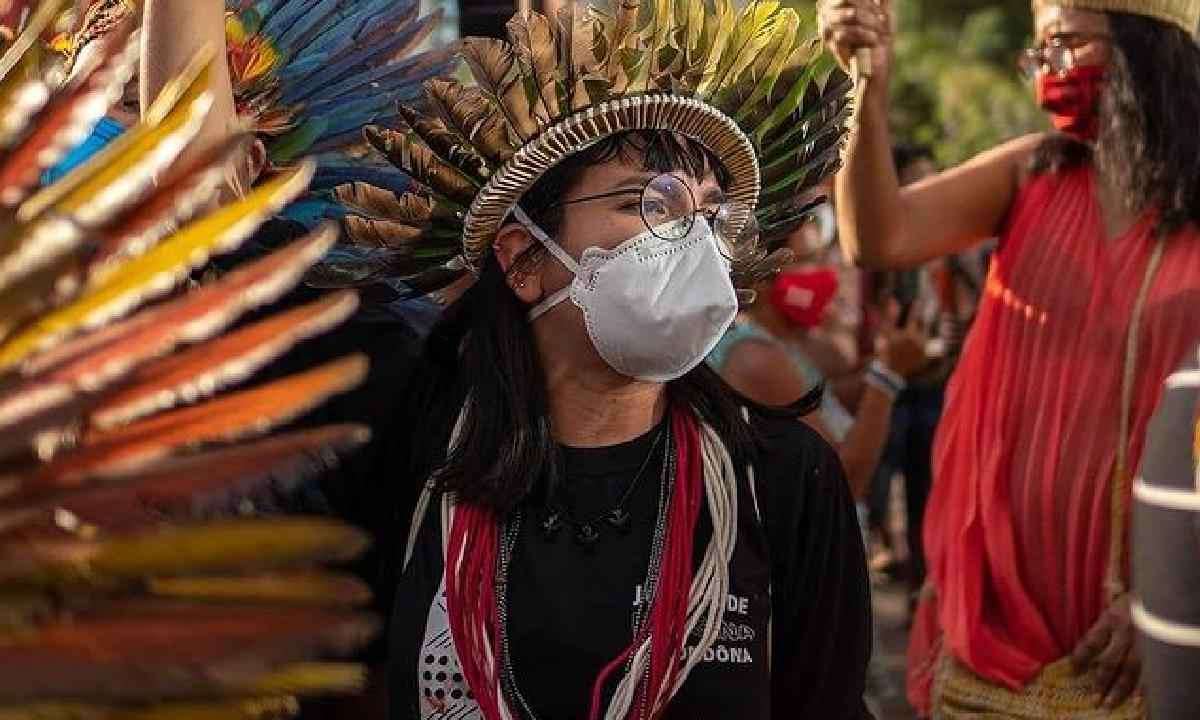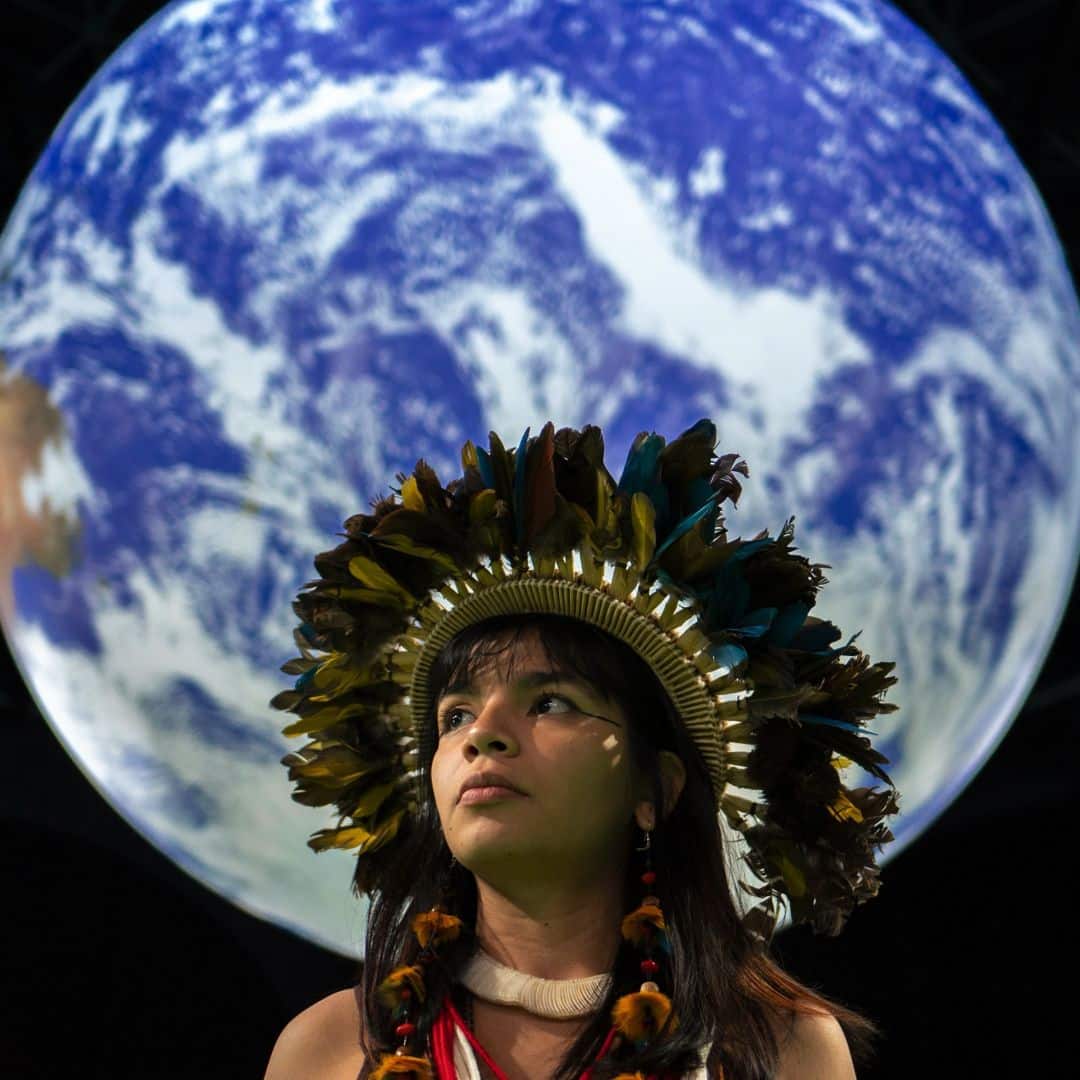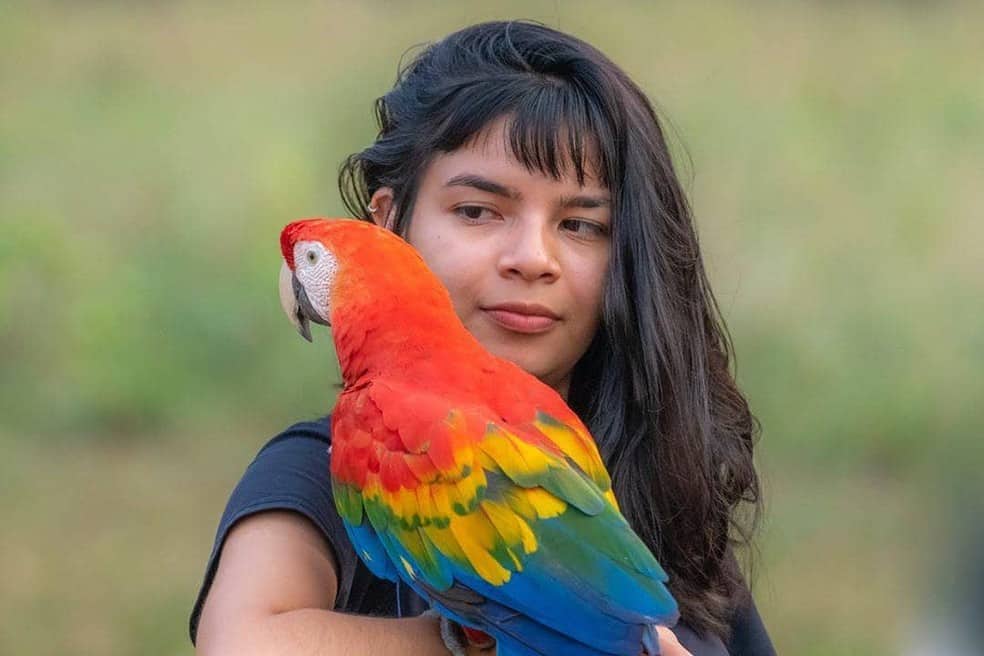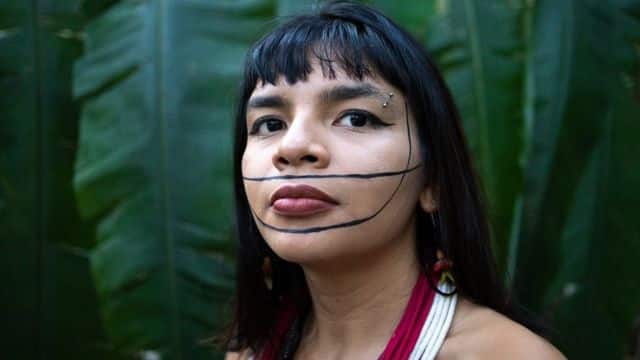Who is Txai Suruí? The name was highlighted at the last climate summit in Glasgow, the only one responsible for representing Brazil at the event.
Txai Suruí was the only Brazilian to speak at the opening of the climate summit, COP26, in 2021. At 24 years old, she was also the first indigenous person to speak at the opening of a climate conference. The young woman didn’t just draw attention for her traditional clothes, such as the colorful feather headdress, surrounded by suits. Her stance impressed many by demanding agility in tackling the planet’s climate change. Furthermore, she made a point of remembering the situation of indigenous peoples in the face of global warming. But after all, who is Txai Suruí?
Daughter of Neidinha Suruí, an indigenous activist, and Almir Suruí, chief of the Paiter people, Txai spent her childhood and adolescence in the Amazon Rainforest. She grew up in the 7 de Setembro reserve, in Rondônia, an area that is under threat from illegal mining. Last week, during COP26, she was responsible for giving a voice to indigenous peoples. The event took place in Glasgow, Scotland, and is part of the United Nations (UN) projects.
Firstly, in his speech, Txai Suruí demanded indigenous participation in climate summit decisions. Furthermore, in front of world leaders such as Boris Johnson, British Prime Minister and Antonio Guterres, Secretary General of the UN, he recalled the murder of his friend. Ai Uru-Eu-Wau-Wau died fighting against illegal logging in the Amazon Rainforest. Likewise, Txai demanded agility from leaders in tackling climate issues: “It’s not in 2030 or 2050,” she said. “And now!”.
Who is Txai Suruí and what she represents

In this sense, the young woman also raised an important question. Txai Suruí caught everyone’s attention by remembering that indigenous peoples are those who suffer most from global warming. “Indigenous peoples are on the frontline of the climate emergency. That’s why we must be at the center of the decisions that take place here.” However, as she finished her speech, she was approached by a man from the Brazilian Government delegation. “He told me not to talk bad about Brazil,” she commented.
Still at COP26, Brazil announced several plans to contain climate issues. The country committed to zero deforestation by 2028, reduce its methane emissions by 30%, and increased the goal of reducing greenhouse gas emissions by 2030 from 43% to 50%. Likewise, it signed an agreement on forest protection. This agreement provides financing for indigenous peoples to protect their lands.
On the other hand, Txai Suruí received the country’s news with suspicion. The young woman says that the balance of government participation is still negative, as it is more concerned with its image and the image it conveys, “because this interferes with the commercial issue”, than it is really concerned with putting the actions into practice. Txai also recalled that, until then, the federal government had not withdrawn its support for bills that regularize deforested lands, as well as prevent new demarcations of indigenous territory.
President’s response

However, after his speech, Txai Suruí was still the target of attacks from President Jair Bolsonaro, who did not attend the event. Bolsonaro did not mention Txai directly, but the activist was the only Brazilian to speak on the COP26 stage. He criticizes: “They’re complaining that I didn’t go to Glasgow. They took an Indian woman there to attack Brazil. Has anyone seen any Germans attacking Germany’s fossil energy? (…) Nobody criticizes their own country. It’s just here.” The president refuted Txai’s speech in front of the Palácio da Alvorada last week.
After the president’s speech, the young woman confessed that she started receiving attacks and threats on her social networks. Txai Suruí also comments: “After my speech, President Jair Bolsonaro attacked me. But I just came to bring the reality of indigenous peoples. I’m here for a fight that’s not just mine.” The activist also commented that she will not be intimidated by the president’s words, and intends to react by “taking further” the reality of the struggle of indigenous peoples. According to her, criticism only makes the defense echo louder.
“They don’t understand that this is favorable for me”, reflected Txai Suruí. “They are giving me engagement, they are making my voice echo more and more. My way of responding is to continue to denounce what is happening, and increasingly take the voice of indigenous peoples to the world.” The young woman also confesses that she is not afraid of the threats she has received, as she has lived with fear since she was born. In this sense, Txai grew up in indigenous territory threatened by invasions by miners and loggers.
Txai Suruí and his warrior clan

When talking about who Txai Suruí is, it is also necessary to understand that the young woman has always had to deal with external threats. Her mother, Neidinha Suruí, is an active voice in denouncing invasions of indigenous lands. Her father, Chief Almir Suruí, signed a complaint against Bolsonaro with Chief Raoni for “environmental crimes in a context of crimes against humanity”. The complaint was registered with the International Criminal Court.
Regarding this, the activist comments that, because her parents are very courageous, she believes she got that from them. “What my parents gave me about fighting is exactly this strength, this courage, these teachings that we must live in harmony with nature.” In this sense, Txai says that the Paiter Suruí people are made up of 4 clans. “I am from the Gameby clan, which is the clan of warriors.”
At the age of 14, Txai says he spent time living under National Force escort. “Wherever we went, those armed men were on our side.” Furthermore, the young woman is a student in the last semester of her Law course, in Porto Velho. She is the coordinator of the Indigenous Youth Movement of Rondônia, and still works at the NGO defending indigenous rights Kanindé. After the end of COP26, on the 12th, Txai will go to Sweden, as she has an agenda with partners from the Z1 ambassador program.

Sign up for our newsletter and stay up to date with exclusive news
that can transform your routine!
Warning: Undefined array key "title" in /home/storelat/public_html/wp-content/plugins/link-whisper-premium/templates/frontend/related-posts.php on line 12
Warning: Undefined array key "title_tag" in /home/storelat/public_html/wp-content/plugins/link-whisper-premium/templates/frontend/related-posts.php on line 13




